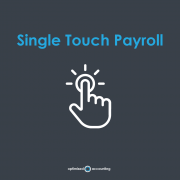Running a business keeps you pretty busy, so it’s easy to overlook the help that’s available. Many small businesses don’t realise the government offers a range of valuable concessions that can make a real difference to their annual tax bill.
Depending on your annual turnover, these can include reduced tax rates, asset write-offs, simplified depreciation rules and tax-free restructuring.
Lower income tax rates
A key concession for small business entities (SBEs) is lower company tax rates. If your business has an aggregate turnover threshold of under $50 million, you are eligible for a flat income tax rate of 27.5 per cent during the 2018-19 and 2019-20 financial years. In 2020–21, this tax rate will drop to 26 per cent, with a rate of 25 per cent applying in 2021–22 and later years.
These lower company tax rates represent a significant discount on the tax rates applying to personal income and sole traders and the full company tax rate of 30 per cent.
Another valuable concession is the instant asset write-off, which allows eligible businesses to immediately deduct the cost of a depreciating asset if the asset costs less than $30,000. This concession is currently available until 30 June 2020 for business entities with an aggregate turnover of less than $50 million.
Simplified asset depreciation
For SBEs with an aggregate annual turnover of under $10 million, another valuable tax concession can be the rules for simplified asset depreciation.
These allow you to pool the business portion of higher cost assets (those not eligible for immediate write-off), and claim a 15 per cent deduction in the year you start using them. You can then claim a 30 per cent deduction each year after that and deduct the balance of the pool at the end of the year if the balance is less than the instant asset write-off threshold.
If the difference between the value of your trading stock on hand at the start and end of an income year is less than $5,000, an SBE can also choose not to account for its trading stock in that income year.
SBE restructure roll-overs
Another useful tax concession permits SBEs to access a rollover where – as part of a genuine restructure – ownership of its assets are transferred without a change in ultimate economic ownership.
This means any gains and losses arising from transfer of capital gains tax (CGT) assets, depreciating assets and trading stock to a new business entity are not counted, so tax is not payable on the restructure.
When you first start-up an SBE, there is also a tax concession for some of the costs involved. Fees for professional advice and government fees, taxes and charges are all immediately tax deductible.
The ATO also has a shorter time period (two years) to amend a business tax assessment for an SBE, rather than the normal four years.
Small business income tax offset
A valuable tax concession for SBEs operating as unincorporated entities (such as sole traders) with an aggregate turnover of less than $5 million, is eligibility for the small business income tax offset.
This concession provides a discount on your income tax liability for business income and comes in the form of a tax offset (capped at $1,000 per taxpayer per year). In 2019–20 the discount rate is 8 per cent, rising to 13 per cent in 2020-21 and 16 per cent in 2021–22.
When it comes to disposing of assets, there are valuable CGT concessions if an SBE has an annual turnover under $2 million. These concessions can limit the amount of CGT payable when business assets are sold and represent significant tax savings if you are eligible.
In addition, many SBEs also qualify for concessions allowing them to use the Simpler BAS rules, account for GST on a cash basis and pay GST in instalments. They can also make an annual apportionment of their input tax credits.
SBEs may also qualify for exemptions on car parking and work-related devices under the FBT rules, and can pay their PAYG tax obligations in instalments.
If you would like more information about starting a business or the next steps to really improve your business in 2020, call us today.
Let’s stay in touch
Sign up to our monthly newsletter here to receive due dates, news, tax tips and other important things that we think are useful and interesting.
This article was written by a third party.











